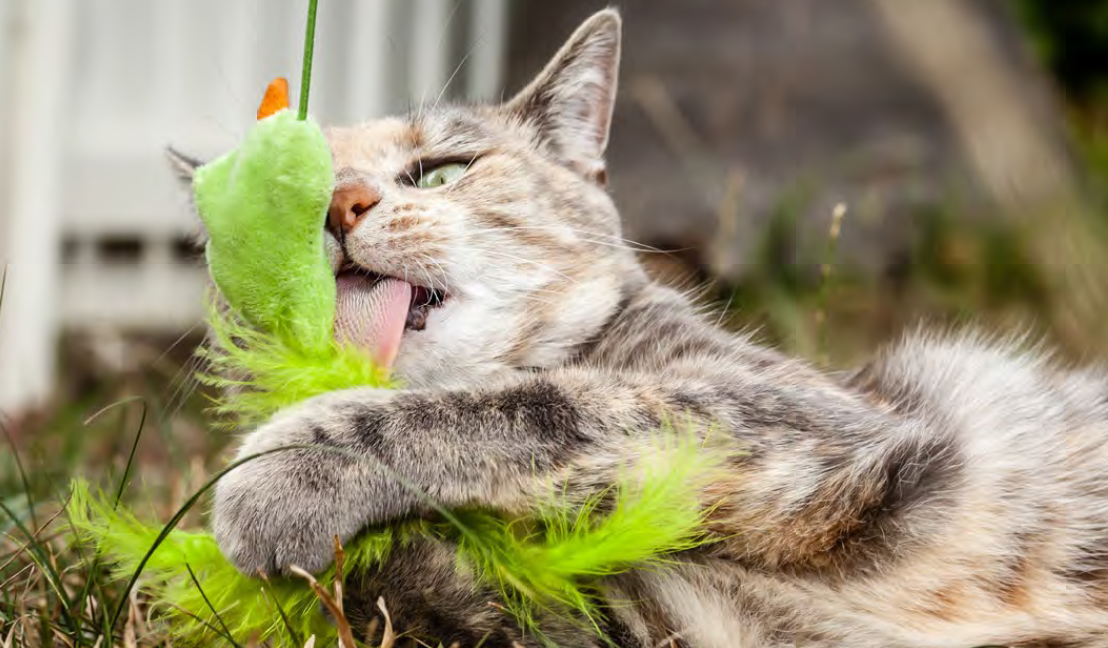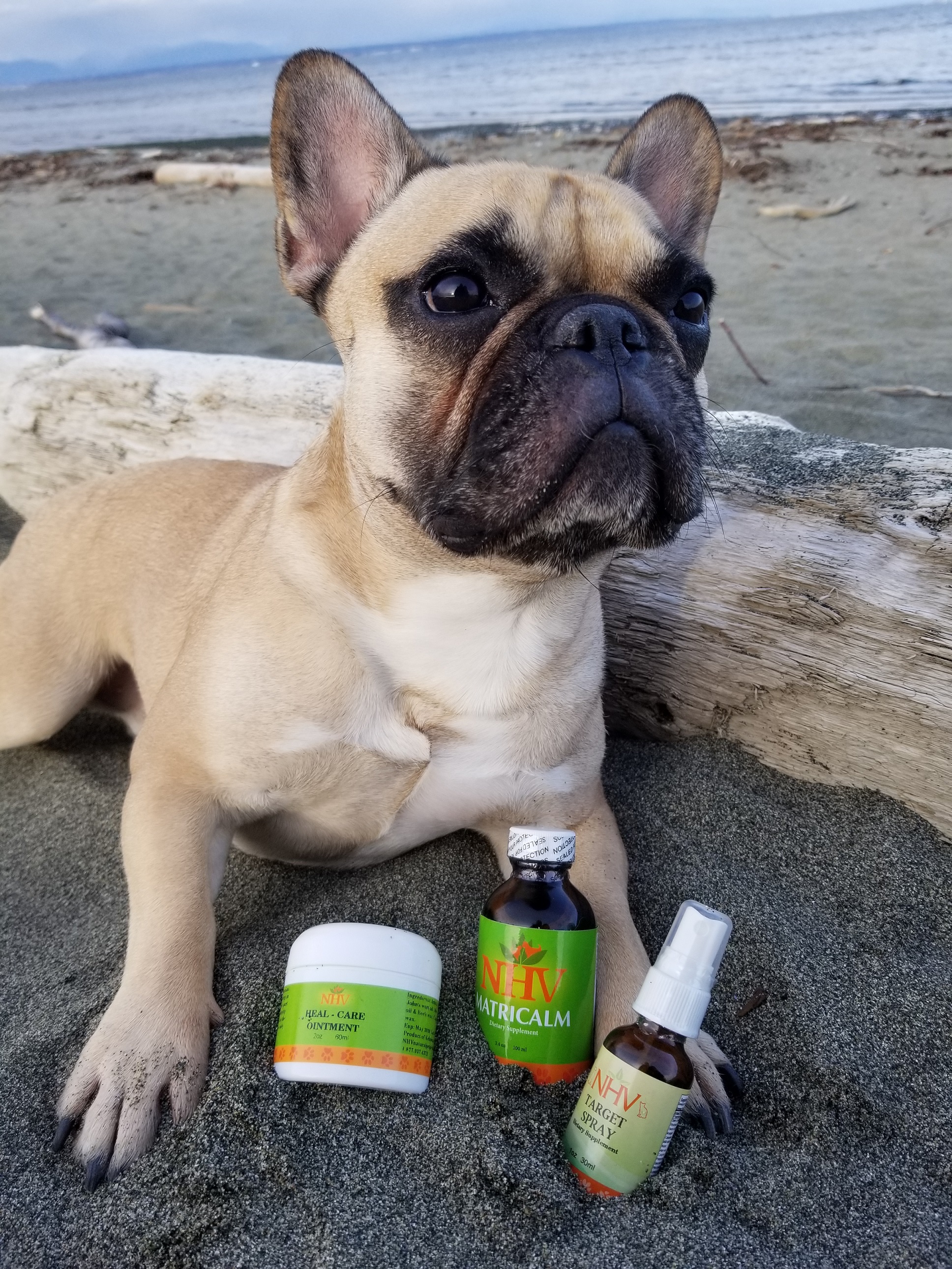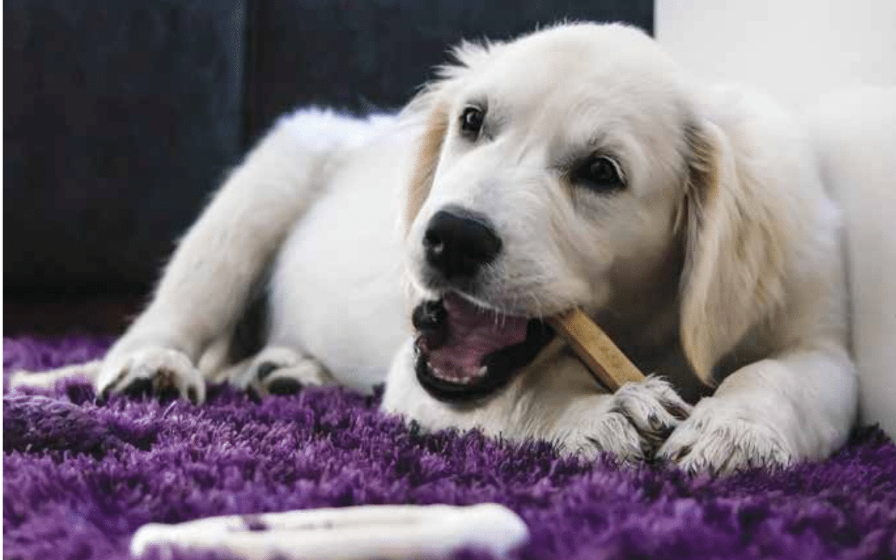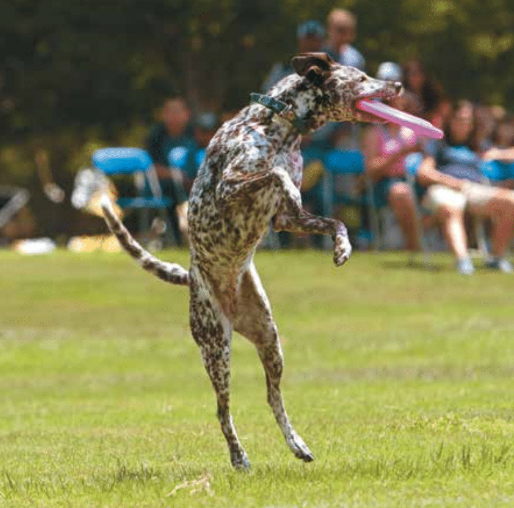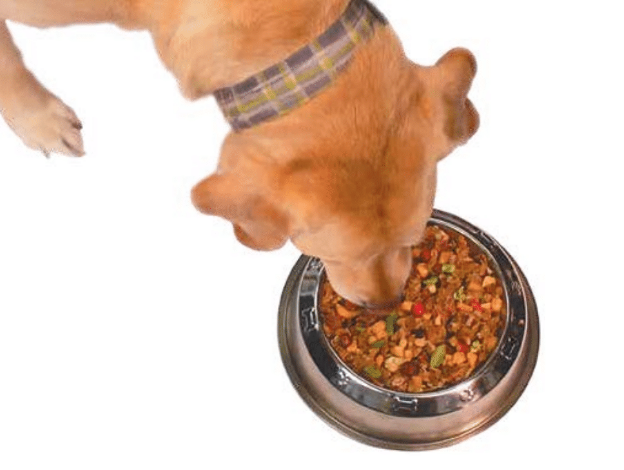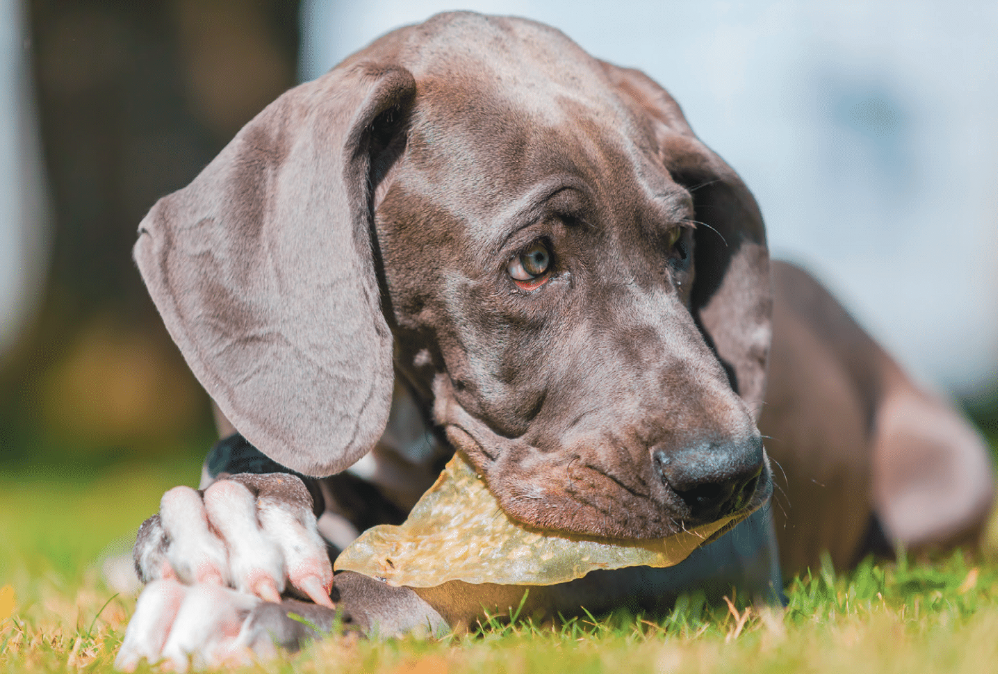From Nature, For Fun
Pet Age Staff //October 24, 2017//
By Eric Stenson
Consumers are increasingly seeking products that are naturally made and responsibly sourced as well as that carry a minimal environmental footprint. In the pet realm, this not only includes food and supplements, but also toys.
Alonzo Guess, co-founder of Walking Palm Cat Caves in Madison, Tennessee, got started by manufacturing golf accessories in 2011. The company was using 100 percent organic Himalayan wool from Nepal and found a pathway to pet products using that material.
“We are animal lovers and owners, so we brought to the table the idea of pets,” he said. “We started with cat caves, really branched out from there, taking a look at the material to see where we could extend it.”
The company makes bone toys and tug rings in assorted colors, as well as a snake felt toy. Walking Palm uses vegetable dyes to color its all-natural products.
“Consistently, we see in the pet product industry, there is a drive toward things that are natural,” Guess said. “The wool is a neat product. It allows you to produce something that is handmade and artisan-like.”
Walking Palm has been making pet products for the past two years. The company recently started a hemp line—wool products wrapped with hemp—which Guess describes as very uncommon in the retail space.
“We have a passion for animals. There are a lot more people who have pets than who golf,” he said. “We use the products ourselves, test the products on our own pets. The products are going into our own homes before they go on the market.”
Guess suggests that retailers take advantage of the vibrant look of his company’s products to make them stand out in stores.
“We found that the most successful retail partners are ones that market— have it displayed in a fun way. Not just on a shelf,” he said. “Very brightly colored, the nature of the wool, it stands out when you see it in a retail environment. Th e texture of the wool is very visibly attractive.”
Recycling Toys
West Paw in Bozeman, Montana, makes plush toys and chew and treat toys made from recycled plastics. All material is BPA-free, Phthalate-free and latex-free, as well as “infinitely recyclable,” according to Amy Schumann, public relations and marketing lead for West Paw.
“Eco-friendly, sustainable is something we’ve done since the beginning,” she said of the company that has been in business for more than 20 years. “It’s ingrained in our culture to be mindful of the environment.”
The company is active in the Pet Sustainability Coalition and is B Corp certified, equivalent to Fair Trade certification for coffee or USDA Organic certifi cation for milk, Schumann explained.
“We were the pet industry’s first certified B Corp, a certifi cation that makes sure businesses are using what they do for good,” she said. “The Pet Sustainability Coalition helps us measure our impact and assure that we keep improving.”
One thing the company has to make it distinctive in the marketplace is its Join the Loop program, in which consumers can send used West Paw toys back to the company, and the company will recycle the toy and send the customer a free replacement, Schumann said.
Planet Dog in Westbrook, Maine, makes a variety of chew toys with its signature Orbee-Tuff material, which is manufactured in the USA. The toys are non-toxic (FDA-approved, BPA and Phthalate-free) and recyclable. The company’s offerings also include its RecycleTOY line (balls and bones) that are 100 percent made from the regrind of its product.
“Sustainability is in our DNA,” said Elizabeth Fagan, Planet Dog’s director of marketing. “When Planet Dog was founded, its mission was to make great, durable, eco-friendly dog toys; that mission holds true 20 years later.”
In addition to its products, Planet Dog also works actively with its Planet Dog Foundation, which has raised over $1.6 million for service dog organizations.
“We steadfastly believe in giving back and helping improve the human and canine bond whenever and wherever possible,” Fagan said.
When it comes to interacting with retailers, Fagan suggests they consider setting up special sections for natural/made-in-the-USA products.
“We know for a fact that pet parents are interested in what is going into their dog’s mouth (both food and toys) and having a section dedicated to these products helps these customers find like-minded products more quickly—which leads to an easier decision process for them,” Fagan said.
Hemp and Wool
Honest Pet Products of Green Bay, Wisconsin, makes dog and cat toys with natural, durable hemp canvas and stuffed with organic wool sourced from humanely raised sheep in California, according to Mary Wolff, president of Honest Pet Products.
“The choice of hemp fabric for the exterior of our toys was easy… the hemp plant is one of, if not the most sustainable plant on our planet,” Wolff said. “With over 25,000 known uses, the plant itself grows to harvestability in just 12 weeks.”
The wool stuffing offers advantages, too, Wolff said.
“Natural wool is a great, safe alternative to polyester-type stuffing used in most toys on the market today, which are made from petrochemicals, known to contain toxins and cancercausing chemicals,” she said. “The choice for natural materials is especially important for pet toys since they are put in the pets’ mouths on a daily basis.”
Honest Pet Products takes some unusual tilts on production processes as well, according to Wolff.
“Several of our cat toys are handmade by women supporting their nomadic families living in the Gobi
Desert,” she said. “As part of this rare and vital economic opportunity, the nomadic families agree to protect, instead of kill, the endangered snow leopards who share the same habitats. The cat toys are colored with natural, vegetable-based dyes, and tails and whiskers are made of boiled yak hair.”
Wolff encourages retailers to learn as much as they can about natural products, as they are in a position to pass on that knowledge to customers.
“Explain and educate pet parents on the importance of toys made of safe materials for their pets to have in their mouths,” she said. “Many people are unaware that there are no federal requirements or restrictions or safety testing enforced upon pet toy manufacturers, making the majority of toys on the market today suspect in regard to safety. By choosing truly natural pet toys, the pet owner can rest assured their pet may enjoy hours of safe play each day.”
Neil Massa, owner of My Pet Naturally in West Los Angeles, California, certainly agrees on the importance of carrying natural items.
“The reason I opened this store in this area is that it is a little more attuned to U.S.-made, natural products,” he said. “I don’t carry anything made in China. That is my customer base.”
Massa carries such brands as West Paw; Yeti, which uses 100 percent wool, made in the Himalayan style; and Oomaloo, which is handmade. Other featured brands include Goughnuts hard rubber toys, Aussie Naturals and Jolly Pets.
“People are more aware, so with a bigger selection they are buying more,” he said. “Those who are willing [to stock more natural items] are finding a growing market.”
